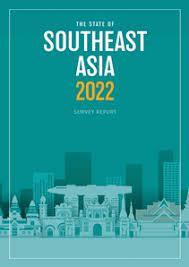
https://www.iseas.edu.sg/wp-content/uploads/2022/01/The-State-of-SEA-202...
Southeast Asia continues to be preoccupied with the COVID-19 pandemic and economic recovery. The most pressing concern remains the pandemic’s threat to health (75.4%), followed by unemployment and economic recession (49.8%), and the impact of climate change (37.0%). Terrorism continues to rank last at 12.5%
Southeast Asians are most concerned that ASEAN is slow and ineffective, and thus cannot cope with political and economic developments (70.1%). They also share the concern that ASEAN is becoming an arena for major power competition in which its member states may become proxies of major powers (61.5%). At the same time, there remains concern that ASEAN is unable to overcome the current pandemic challenges (49.0%)
Slightly more than half of the respondents (51.0%) feel that their governments have performed well or adequately in addressing the COVID-19 pandemic. 30.6% of the respondents disagree while 18.4% remain neutral.
The most trusted vaccine brands among Southeast Asians are the mRNA Pfizer and Moderna (54.8%), followed by Chinese brands Sinopharm and Sinovac (18.7%). 13.7% of the respondents feel comfortable with any vaccine available, higher than the vote share for AstraZeneca (9.2%), Indianmanufactured vaccines (1.9%), domestic vaccines (0.9%) and Sputnik-V (0.8%).
The Myanmar crisis has put ASEAN’s centrality and unity to the test. 37.0% of the respondents approve of ASEAN’s response to the crisis, 33.1% disapprove, and 29.9% remain neutral. 42.5% of respondents who approve feel that ASEAN has taken active steps to mediate in the crisis while 45.5% of those who disapprove feel that ASEAN is moving too slowly in its response to the escalating political and humanitarian crisis.
Competing spheres of influence in the region and beyond are not far from everyone’s minds. 58.5% of the respondents welcome the strengthening of the Quadrilateral Security Dialogue (QUAD) and the prospects of tangible cooperation in areas such as vaccine security and climate change. On regional security, 36.4% feel that the AUKUS arrangement will help balance China’s growing military power, 22.5% feel that it will escalate the regional arms race, while 18.0% are of the view that it will weaken ASEAN centrality.
China’s membership in the CPTPP is perceived to create both opportunities and challenges for the region. 31.0% feel that it will reduce economic tensions in the region and help to resolve the US-China trade war while 29.9% disagree. In the absence of the US, close to half (46.8%) are of the view that a rise in China’s influence will fill the void. 23.2% are worried about the rise in regional tensions as the US shifts its focus of engagement to exclusive security pacts in the Indo-Pacific.
Japan remains the most trusted major power among Southeast Asians, with 54.2% of the respondents expressing confidence in Japan to “do the right thing” to provide global public goods, followed by the US (52.8%), and the EU (48.5%). Of those who express distrust towards China (58.1%), 49.6% fear that China could use economic and military power to threaten their country’s interest and sovereignty.










Add new comment